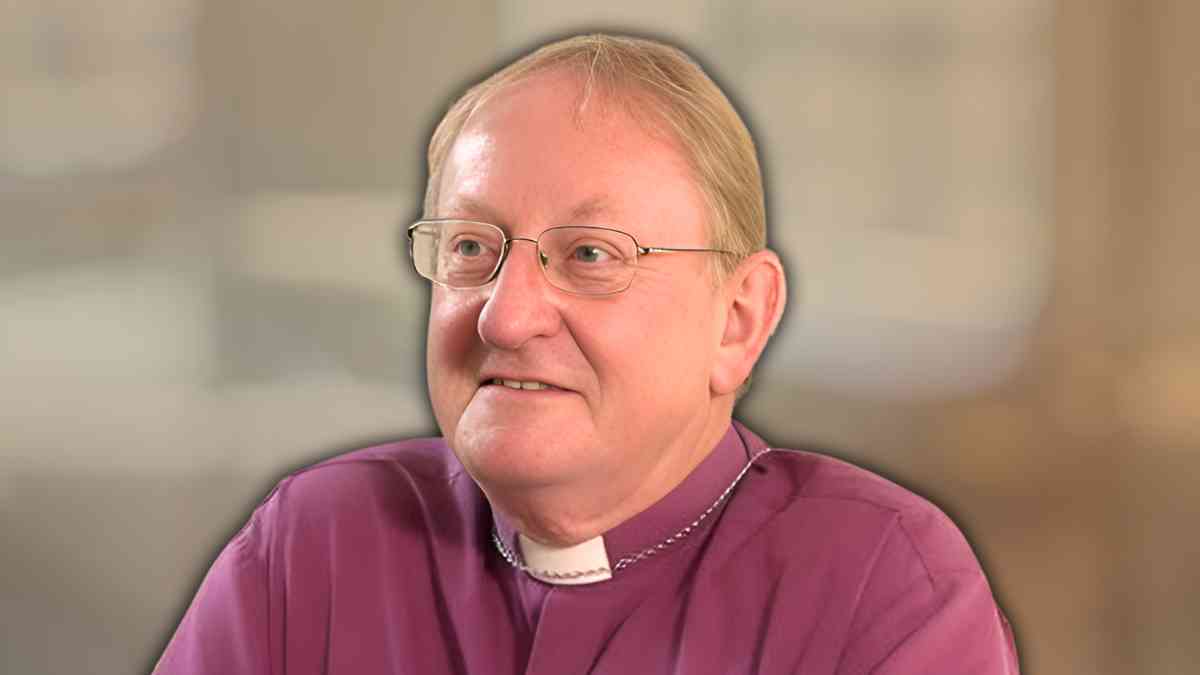Chris Goldsmith: A Life of Faith, Leadership, and Service in the Church of England

Chris Goldsmith, formally known as Christopher David Goldsmith, stands as one of the notable figures in the Church of England in recent decades. Born in October 1954, his journey has been anything but conventional. Moving from a successful career in the oil and gas industry into the service of the church, he has embodied resilience, transformation, and unwavering commitment to faith and leadership. His service as Bishop of St Germans, Acting Bishop of Truro, and later as the Church of England’s Director of Ministry, reflects not only a career but also a calling that transcends personal ambition.
Early Life and Education
Chris Goldsmith was born in Dartford, Kent, where he attended Dartford Grammar School. His early academic brilliance led him to the University of York, where he studied biochemistry. He achieved a Bachelor of Arts in 1976 and a Doctor of Philosophy in 1979. These formative years at York did not only provide him with a strong grounding in science but also instilled a discipline and curiosity that would later define his professional and spiritual paths.
Professional Career in the Oil and Gas Industry
Unlike many clergy who begin their journey with early theological education, Chris Goldsmith initially pursued a very different career. He spent twenty-five years working with Shell International, one of the largest oil and gas corporations in the world. His work took him across Kent, Essex, London, and Amsterdam. Starting as a research scientist, he eventually transitioned into management and human resources.
During his time in the corporate world, Goldsmith gained a deep understanding of leadership, strategic planning, and the complexities of managing diverse teams. These skills, although honed in industry, would later serve him exceptionally well in his ministry. His ability to communicate clearly, organise effectively, and empathise with people from different walks of life became trademarks of his leadership in the Church.
Transition Towards Ministry
The shift from oil and gas to ordained ministry is not a common one, yet for Chris Goldsmith, it was a natural evolution of his faith and sense of calling. His spiritual journey began with service as a Reader in 1984, while he was still working full-time in industry. This role allowed him to preach, teach, and support parish life without being ordained.
After years of balancing professional and church commitments, he chose to pursue ordination formally. Between 1997 and 2000, he trained part-time on the North Thames Ministerial Training Course. His decision to study outside of the traditional residential theological colleges gave him a unique perspective. He understood what it meant to be a layperson juggling professional and family responsibilities, which later influenced his passion for supporting lay ministry.
Ordination and Early Ministry
Chris Goldsmith was ordained deacon in 2000 and priest in 2001 in the Diocese of Chelmsford. His curacy was at Pitsea with Nevendon, an area marked by social deprivation and economic challenges. Serving in such a community shaped his pastoral instincts and grounded him in the reality of parish life. He quickly became known for his down-to-earth approach, willingness to listen, and ability to bridge gaps between the Church and the wider community.
In 2004, he became the vicar of Warley Christ Church and St Mary the Virgin, Great Warley. For almost a decade, he shepherded the parish, building strong ties with the congregation, encouraging spiritual growth, and overseeing the practical responsibilities of parish leadership. His success in this role demonstrated his readiness for broader responsibilities within the Church.
Appointment as Bishop of St Germans
In March 2013, Chris Goldsmith was appointed Bishop of St Germans, a suffragan bishopric in the Diocese of Truro. He was consecrated in May of that year by the Archbishop of Canterbury, Justin Welby. His appointment was widely welcomed, as he brought both a wealth of real-world experience and a pastoral heart into the role.
As Bishop of St Germans, he had oversight of clergy, support for parish life, and responsibility for nurturing ministry across Cornwall and beyond. He was also the Diocesan Warden of Readers, reflecting his lifelong commitment to developing lay ministry. His time as bishop was marked by active engagement with clergy and laity alike, ensuring that ministry was both collaborative and mission-focused.
Acting Bishop of Truro
Between August 2017 and November 2018, Chris Goldsmith served as the Acting Bishop of Truro. This was a period of transition for the diocese, and his steady hand provided stability. He not only managed diocesan responsibilities but also played a vital role in ensuring that the local Church continued to thrive despite leadership changes.
His work during this time demonstrated his ability to step into challenging circumstances with composure and determination. He guided the diocese with wisdom and care, ensuring continuity of mission and pastoral support.
Director of Ministry for the Church of England
In June 2019, it was announced that Chris Goldsmith would step down from his episcopal role to become the Church of England’s Director of Ministry. He formally resigned as Bishop of St Germans on 29 September 2019. In this national role, he took on the responsibility of shaping the future of ministry—both ordained and lay—across the entire Church.
His appointment was seen as a strategic choice. With a background in industry, parish leadership, and episcopal oversight, he possessed a rare blend of skills. His work focused on developing strategies for ministry renewal, supporting clergy wellbeing, and ensuring that the Church was equipped to face the challenges of a changing society.
A Leader in Times of Crisis
Leadership is often tested in moments of crisis. Chris Goldsmith faced such a challenge during the review into the mishandling of abuse allegations in the Diocese of Truro. In public statements, he acknowledged the Church’s failures and issued a heartfelt apology. His response reflected a commitment to transparency, accountability, and the need for cultural change within the Church.
By emphasising openness and responsibility, he reinforced the principle that leadership within the Church must always be accountable to its people and to God. His sincerity during this difficult period left a strong impression, underscoring his integrity as a leader.
Vision and Legacy
Chris Goldsmith’s vision for the Church is deeply rooted in the idea of mobilising “the whole people of God for the mission of God.” He has consistently argued that ministry cannot be left solely to the clergy; lay people must also be empowered and equipped to serve. His initiatives as Director of Ministry reflect this belief, ensuring that the Church adapts to modern needs while remaining faithful to its traditions.
His legacy is not only institutional but personal. Those who have worked with him often describe him as approachable, compassionate, and grounded. His ability to bring together his scientific, corporate, and pastoral experiences has made him a uniquely effective leader within the Anglican Church.
Personal Life
Away from public ministry, Chris Goldsmith has lived a family-centred life, balancing responsibilities with humility. His personal journey—from scientist to bishop—reflects a man of curiosity, dedication, and deep faith. Though much of his life has been public, he has maintained a quiet dignity, allowing his work and his example to speak louder than words.
Conclusion
Chris Goldsmith’s story is one of transformation, faith, and service. His path from the laboratories of Shell International to the pulpits and diocesan offices of the Church of England illustrates a rare blend of worldly expertise and spiritual devotion. As Director of Ministry, he continues to shape the future of the Church, ensuring that it remains relevant, resilient, and faithful in the face of modern challenges.
His life reminds us that leadership in the Church is not about hierarchy but about service, not about privilege but about responsibility, and not about personal ambition but about faithfulness to God’s mission. In every stage of his journey, Chris Goldsmith has demonstrated that true leadership is rooted in humility, courage, and an unwavering commitment to the people of God.



